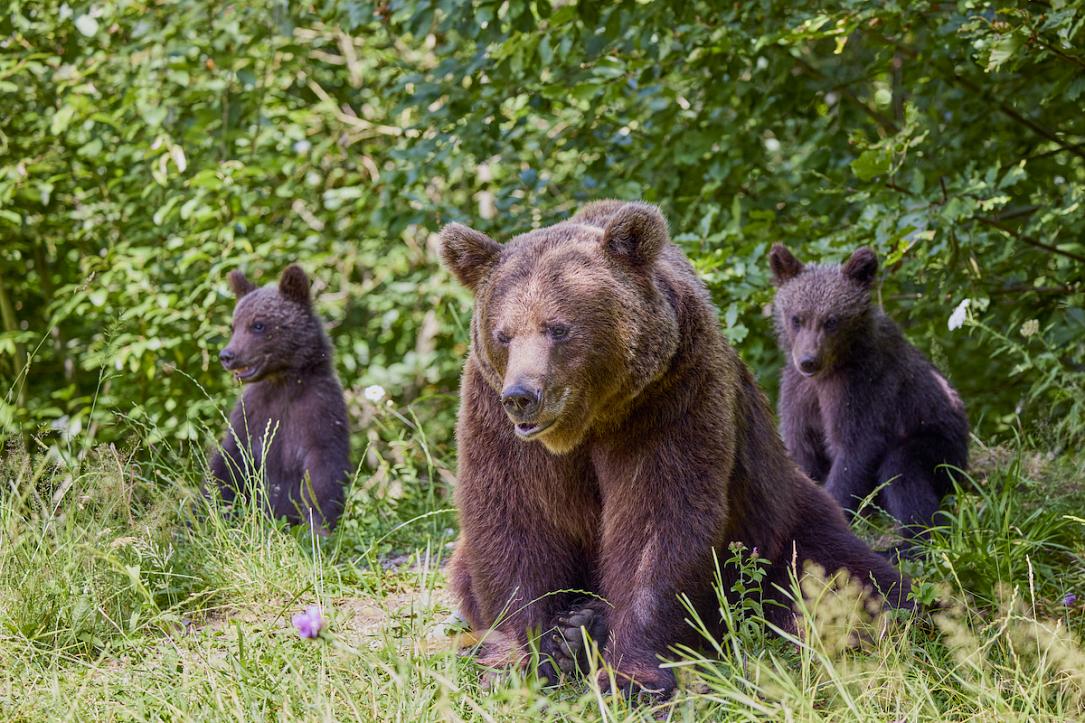BBC article highlights Romania as “the European nation where bears roam free”



The famous British publication BBC highlighted Romania’s bear population and the responsible ways in which to admire them in an article published on Monday, April 28.
Romania boasts the largest population of wild brown bears in Europe outside of Russia, around 13,000. They represent an attraction for many tourists visiting Romania’s Carpathian Mountains, and not long ago they were paraded in cages to attract customers, according to the author of the piece, Lynn Brown.
However, when Romania joined the European Union in 2007, the country began to adhere to the EU Zoos Directive, which issues guidelines for how captive animals are to be treated. In the past 18 years, bears have been treated more humanely.
Now, companies in Romania offer sustainable bear tourism to those wishing to see free brown bears roaming the forests. Meeting one is not a rare occurrence. Romania's Forestry Research Institute revealed that the nation's brown bear population is much higher than previously estimated.
The renewed way of doing tourism brought economic opportunities to rural communities in Romania’s remote mountain areas, where brown bears have lived for millions of years.
“There's even a dedicated safe haven: Libearty Bear Sanctuary, nestled in the southern Carpathian Mountains in the town of Zarnesti, is the world's largest brown bear sanctuary. It not only rescues and provides medical care to formerly captive bears who can't be released into the wild, but also offers public tours, allowing visitors to see the bears in a 69-hectare expanse of oak forests and grasslands,” the article points out.
Locals, however, say that bear encounters can be dangerous. Visitors have also had conflicts with the animals, often because of unexpected encounters while hiking the mountains, several of which have turned deadly. Conservationists argue that this is not the norm, and efforts are underway to try to find a happy medium that protects the bears and keeps visitors and livestock as safe as possible.
Most life-threatening encounters with bears are due to human error, usually when a human startles a bear or interacts inappropriately with cubs, making mother bears defensive.
“Therefore, when hiking in bear country – whether in Romania or elsewhere – it's important to talk loudly or clap your hands to give the animals time to avoid you,” the BBC article concludes.
In 2024, Romania doubled the hunting quota for the brown bear to almost 500 following the deadly attack on a hiker in the Carpathians. After another severe attack in the mountain town of Predeal in March this year, authorities said that the annual quota for bear culling could be revised again.
However, environmental groups expressed serious concerns, arguing that hunting alone is not a sufficient solution to lower the number of bear attacks or sustainably manage the population. They have repeatedly said that the law passed last year could potentially open the door to trophy hunting, a practice that is in direct violation of EU legislation.
(Photo source: Cristian Zamfir | Dreamstime.com)